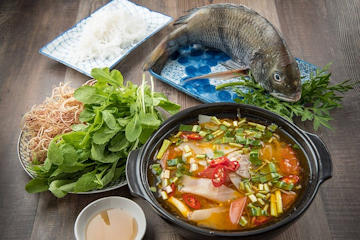Can I Eat Meat Broth, Stock, Sauces, Fats, or Gelatin on Lent Fast and Abstinence Days?
An Answer to Lent Food Restriction Questions

For Catholics, there are certain fasting and abstinence guidelines during Lent. The guidelines vary depending on age, but for most people, the rules prohibit the consumption of "meat."
The Church defines "meat" less broadly than do most vegetarians. Meat is defined as the flesh of a warm-blooded animal. So foods like beef, chicken, and turkey are excluded, but fish and other seafood are allowed. This is why Catholics often eat fish during Lent.
So, what about things like stock, broth, and even fat that are derived from animals? Current canon law technically allows the consumption of broths, stock, fats, and sauces from animals on Lenten fast and abstinence days. This even includes possible little bits of meat that may make it into sauces, or bacon grease. Also, Catholics are allowed to consume gelatin products (such as vitamin capsules and gelatin desserts). The reasoning is that gelatin is so refined as to have no meat taste or smell.
However, it's also important to remember that your local episcopal conference, or the Bishops of your local Church, can make amendments or suggestions regarding fasting guidelines, so if you're unsure, check with the episcopal conference of your region.
Of course, seeing as the current restrictions are pretty easy to follow, it may be a better idea to avoid stocks and broths made from animals, and find products derived from fish or vegetables, as these are readily available. I suggest this since Lent is about building discipline, not necessarily doing the minimum.
However, based on the minimum requirements and standards for keeping a good Lenten fast, you can use stocks and broths from animal products.
Updated 02-12-2018